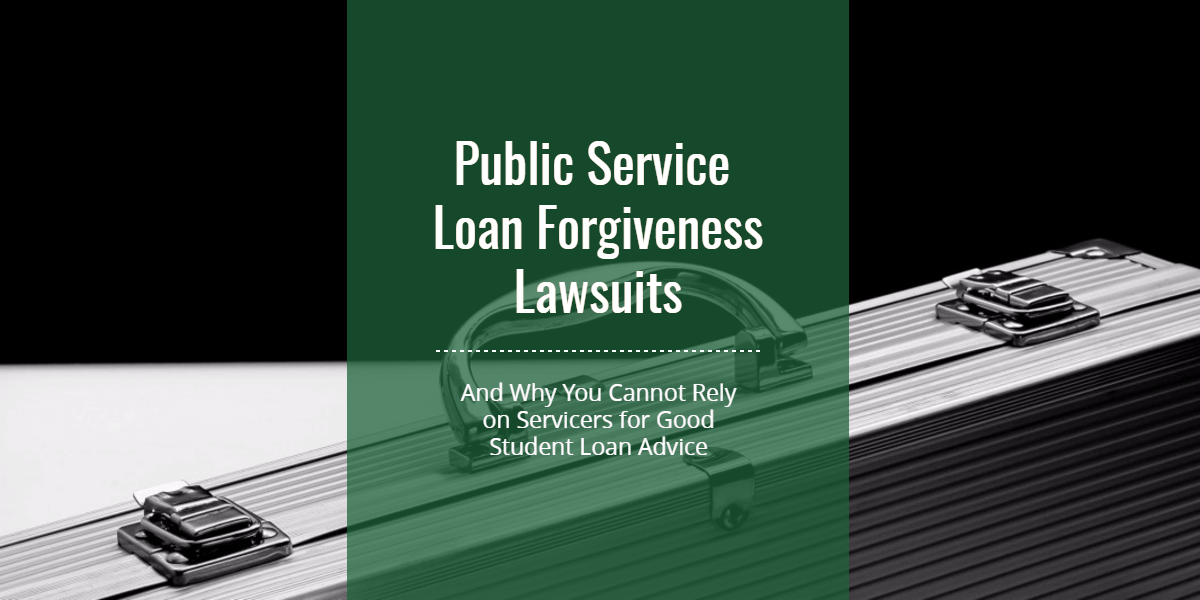October of 2017 will mark the first year for borrowers to become eligible for loan cancellation through the Public Service Loan Forgiveness (PSLF) program. This program promises tax-free forgiveness to borrowers who make 120 qualifying payments while working for certain employers — generally either for the government or a non-profit organization. Unfortunately, it is becoming clear that the number of those expecting forgiveness is much greater than those who will actually see their loans cancelled later this year.
As borrowers begin to apply for forgiveness, many are finding that they were never eligible, despite previously being approved by their loan servicers. Given the way various payment plans are structured, this means that many people will have a higher balance today than when they entered into repayment, with no relief in sight. As a result, many are filing suit against the Department of Education, as well as servicers like Navient who previously informed borrowers that they were approved. If their claims are accurate, this would understandably create some concern from those counting on their loans being forgiven.
Despite what many are considering a broken promise by the DoE, it appears as though those at the heart of the lawsuit weren’t ever eligible for forgiveness. In order to be eligible for PSLF, you must follow these three criteria:
- Eligible Loans – Specifically, FFEL loans are not eligible
- Eligible Repayment Plan – IBR, RePAYE, or PAYE are the most common. Graduated, or extended plans, while sometimes resembling income driven repayment plans, do not qualify.
- Eligible Employer – generally a government or 501(c)(3) organization.
The biggest source of confusion seems to be the eligible employer criteria, as the tax-exempt status of many organizations can be confusing. In fact, the American Bar Association — which is one of the employers in question in the suit — is considered a 501(c), which can be confusing to even the most savvy of borrowers. If you are unsure of the tax exempt status of your employer, you can look it up online.
While being sure up-front about your eligibility for forgiveness is ideal, this situation also could have been prevented if the servicers hadn’t initially “approved” these borrowers. The key takeaway here is that the loan servicers do not work for the borrower – they work for the lender. As a result, they are not a viable option for seeking counsel on your loans. In fact, it may be the opposite, per Navient executive Jack Remondi — “There is no expectation that the servicer will act in the best interest of the consumer.”
It is important to be fully aware of your options, as well as being confident that the one you have selected is best for you and your repayment strategy. If not done properly, it can cost you big time. And with many graduating medical students holding loans in excess of $300,000, it pays to be proactive.
If you have questions or would like to discuss your student loans, contact us today. You might also find some valuable information in our Complete Guide to Student Loans.
